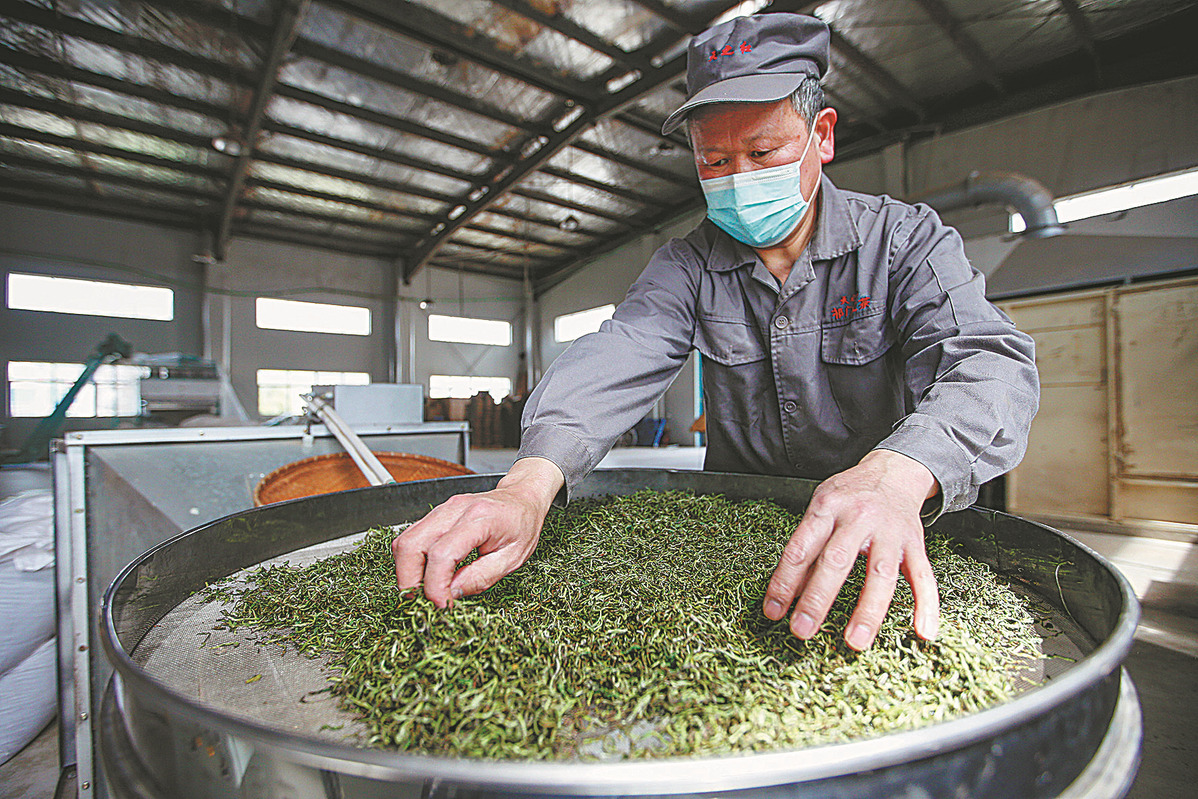

Invited by Wang Jing, president of Anhui's chamber of commerce in St. Petersburg, the couple paid a visit to the Anhui Keemun Black Tea Development Co., Ltd., where they had a close look at the local showroom, production workshop, and tea plantation.
They picked some tea leaves as well. "The fresh leaves smell so good. I really like them," said Daria Ruban.
An inheritor of ancient Keemun black-tea producing crafts also showed them the complex manufacturing procedures with rigorous standards.
"The local company has customized diversified products for its consumers. That's something we need to learn from," Maksim Ruban said.
On April 2, during the local Keemun black-tea picking festival, the Russian man signed an agreement with the local tea producer, reaching their initial cooperation intention.
Though it was his first trip to Qimen, Maksim Ruban was deeply impressed by the county's beautiful ecological environment and high-quality tea leaves.
"Keemun black tea presents an attractive infusion with exquisite fragrance and a sweet aftertaste," he said, adding that his company used to sell lots of Pu'er tea, a deep-brewed tea with a sweet aroma from Southwest China's Yunnan province, but he has decided to introduce Keemun black tea to his family and friends and more Russian customers after this visit.
Many Russians enjoy coffee and milk tea, but there is also a growing number interested in Chinese tea, Maksim Ruban said.
Their tea journey has deep roots in the history of tea trade between China and Russia. In the 17th century, an ancient tea road stretched about 13,000 km, linking China's Wuyi Mountains in East China's Fujian province with Russia's St. Petersburg, where the couple hail from. Anhui is also along the route.
While doing tea trade, they also promote Chinese tea culture.
They took photos during the trips and posted them on social media platforms, hoping that more young Russians will fall in love with the exotic taste of Chinese tea just like them.